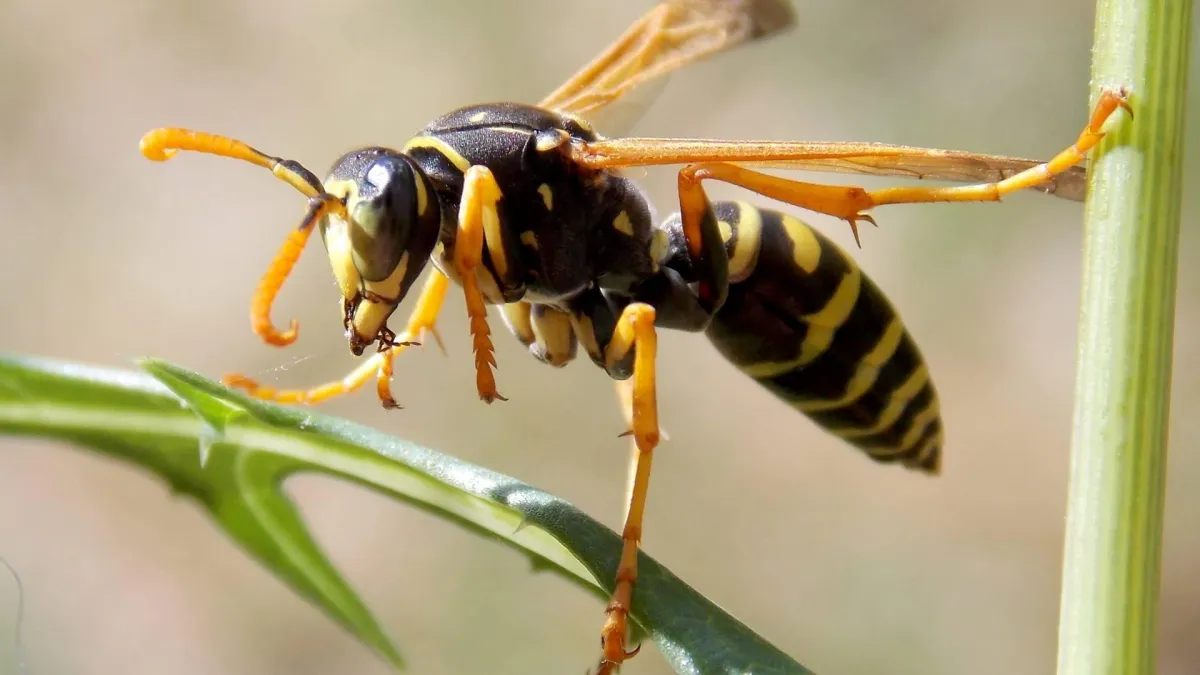Blog
Explore insightful and informative pest control blogs

Homemade Bee and Wasp Killer: Quick & Easy Methods
Combining DIY solutions with professional services ensures safe, effective pest control.
A DIY recipe involves vinegar, water, essential oils, and dish soap for managing bees and wasps.
Regular inspections, attractant management, and planting deterrents are key to a pest-free environment.
The warm embrace of the outdoors often comes with a sting—literally. Bees and wasps, while essential to our ecosystem, can turn leisure into fear, especially for those with allergies.
As the head of a pest control company, I've seen firsthand the concern these insects cause among homeowners. Yet, I understand the growing desire for natural, less intrusive methods of pest control.
That's why we're here to share a DIY bee and wasp killer recipe that aligns with our professional approach—safe, effective, and environmentally friendly. It’s about managing pests while respecting nature, ensuring your safety and peace of mind.
What You'll Need for Your DIY Bee and Wasp Killer

Embarking on the DIY path doesn't mean going it alone. Here’s a professional-approved list of what you’ll need for your homemade solution:
White vinegar or apple cider vinegar: A natural repellent due to its acidity.
Water: To dilute the mixture, making it safe for nearby plants.
Essential oils: Options like peppermint and citrus double as effective repellents and pleasant aromatics.
Dish soap: Increases the mixture's adherence to insects, improving efficacy.
Spray bottle: For targeted and convenient application.
Reclaim your home! Contact our pest control experts now
Crafting Your Solution: A Step-by-Step Guide
Prepare the Mixture:
Combine equal parts water and vinegar in the spray bottle.
Add 10-15 drops of your chosen essential oils.
Incorporate a teaspoon of dish soap to ensure the solution sticks.
Shake the bottle to mix thoroughly.
Safe Application Tips:
Target nests during dawn or dusk when bees and wasps are less active.
Apply around your home’s perimeter and potential entry points as a preventative measure.
Secure a pest-free home—call our professionals today!
Balancing DIY Efforts with Professional Insight

Home Inspections: Regularly check your property for signs of nests or increased activity and consider professional evaluations.
Attractant Management: Secure food sources and garbage to make your space less inviting to these pests.
Water Source Reduction: Limit standing water to discourage bees and wasps from setting up camp.
Complementary Planting: Integrate plants like mint or basil around your home as natural deterrents, a tip often recommended by pest control experts.
Home Inspections: Regularly check your property for signs of nests or increased activity and consider professional evaluations for residential pest control.
End your pest problems. Reach out to our team now!
Empowering Your Pest Management

From a pest control professional's standpoint, the power of a DIY bee and wasp killer lies in its integration into a broader pest management strategy.
It's a testament to the effectiveness of combining traditional knowledge with modern, environmentally conscious practices. While DIY methods provide a great starting point, remember that severe or dangerous situations should be left to the experts.
Our goal is to ensure your outdoor spaces are safe and enjoyable, blending DIY solutions with professional services to achieve the best of both worlds. So, as you enjoy your bee and wasp-free outdoors, know that we're here to support your peace of mind, every step of the way.
Frequently Asked Questions About Homemade Bee and Wasp Killer
What is the best homemade bee killer?
The best homemade bee killer typically involves a mixture of water, dish soap, and vinegar or essential oils. This combination is effective because the soap breaks down the bees' waxy exterior, leading to dehydration, while the vinegar or essential oils act as natural repellents or insecticides. However, it's crucial to use such solutions responsibly to avoid harming beneficial bee populations and the environment.
Will Dawn dish soap kill wasps?
Yes, Dawn dish soap can kill wasps when mixed with water and sprayed directly onto them. The dish soap works by breaking down the wasps' protective outer layer, leading to suffocation. This method is considered a safe and non-toxic alternative to chemical insecticides for dealing with wasps in or around the home.
Schedule a pest control evaluation and protect your home today!
Does vinegar kill wasps and bees?
Vinegar, when mixed with water and dish soap, can deter and potentially kill wasps and bees. The acidity of vinegar repels these insects, and when used in a spray solution with dish soap, it can be lethal to them. However, vinegar should be used cautiously as it does not differentiate between pests and beneficial insects, and overuse can harm the environment and non-target species.
Craving a Superior Pest Control Solution?
COMPANY STORY
& EXPERIENCE
Craig Broadhead started his pest business in 2004 in California, called Pacific Pest Control. In 2021, he sold his business and moved his family to Arkansas to start fresh with a new vision of Network Pest Control. His goal it to make sure each customer has the best experience possible.


Network Pest Control
11205 Meadow Lark Rd. Rogers AR 72756
479.888.4249
